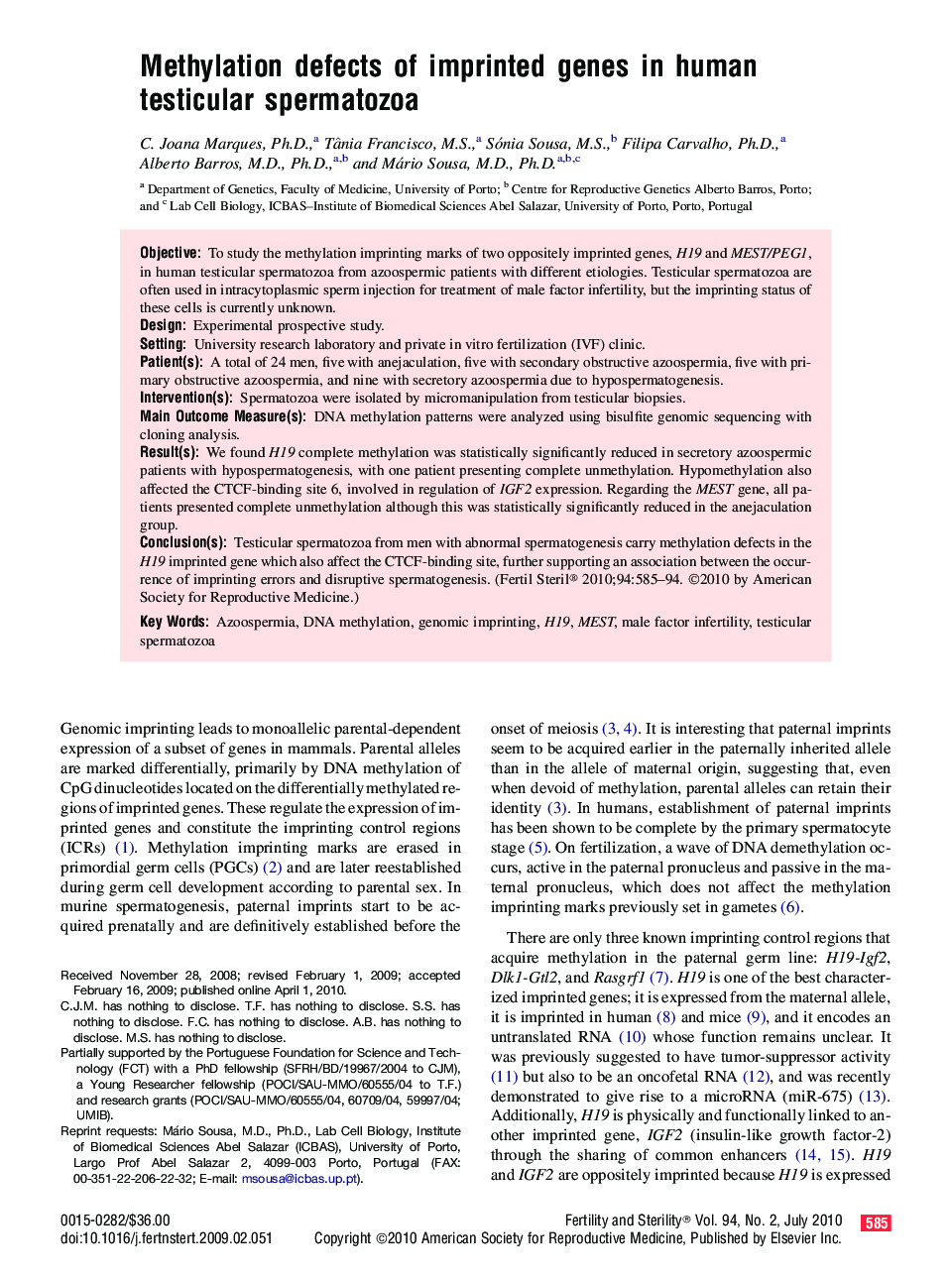| Article ID | Journal | Published Year | Pages | File Type |
|---|---|---|---|---|
| 3933437 | Fertility and Sterility | 2010 | 10 Pages |
ObjectiveTo study the methylation imprinting marks of two oppositely imprinted genes, H19 and MEST/PEG1, in human testicular spermatozoa from azoospermic patients with different etiologies. Testicular spermatozoa are often used in intracytoplasmic sperm injection for treatment of male factor infertility, but the imprinting status of these cells is currently unknown.DesignExperimental prospective study.SettingUniversity research laboratory and private in vitro fertilization (IVF) clinic.Patient(s)A total of 24 men, five with anejaculation, five with secondary obstructive azoospermia, five with primary obstructive azoospermia, and nine with secretory azoospermia due to hypospermatogenesis.Intervention(s)Spermatozoa were isolated by micromanipulation from testicular biopsies.Main Outcome Measure(s)DNA methylation patterns were analyzed using bisulfite genomic sequencing with cloning analysis.Result(s)We found H19 complete methylation was statistically significantly reduced in secretory azoospermic patients with hypospermatogenesis, with one patient presenting complete unmethylation. Hypomethylation also affected the CTCF-binding site 6, involved in regulation of IGF2 expression. Regarding the MEST gene, all patients presented complete unmethylation although this was statistically significantly reduced in the anejaculation group.Conclusion(s)Testicular spermatozoa from men with abnormal spermatogenesis carry methylation defects in the H19 imprinted gene which also affect the CTCF-binding site, further supporting an association between the occurrence of imprinting errors and disruptive spermatogenesis.
